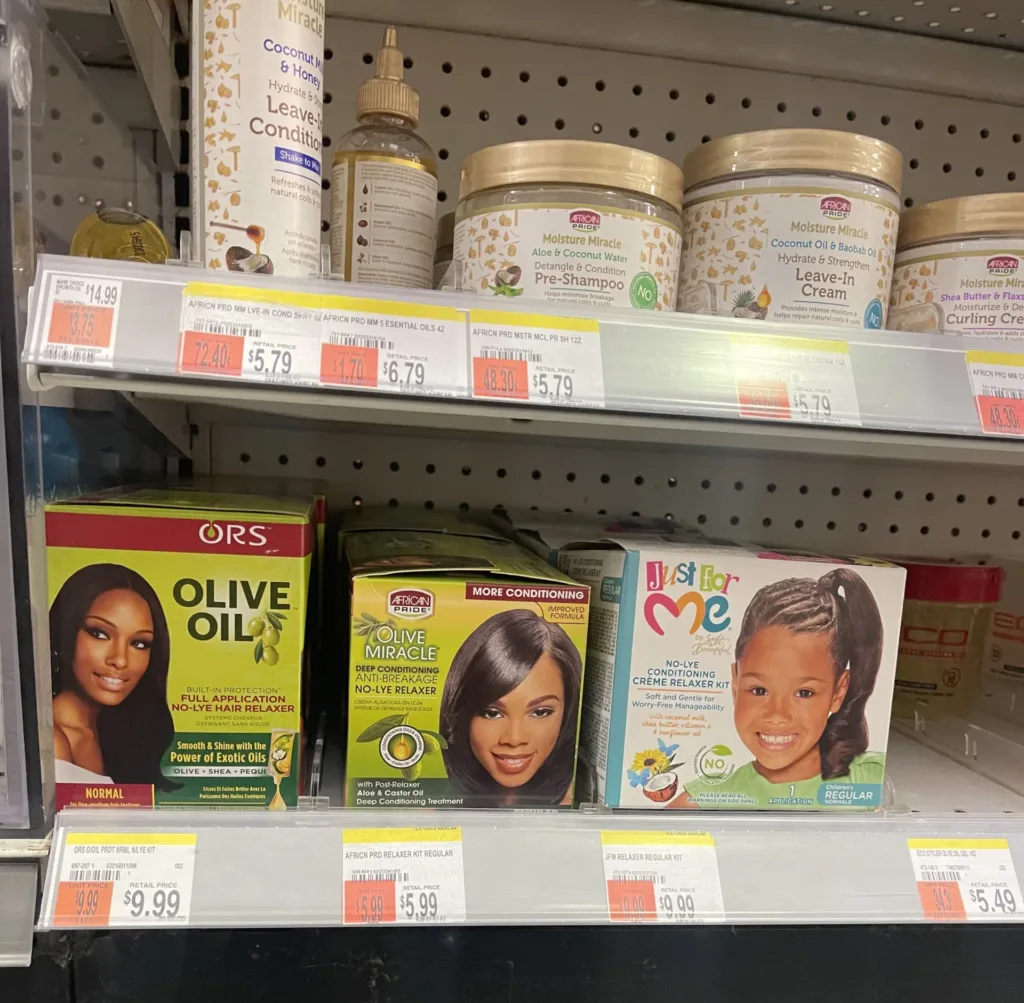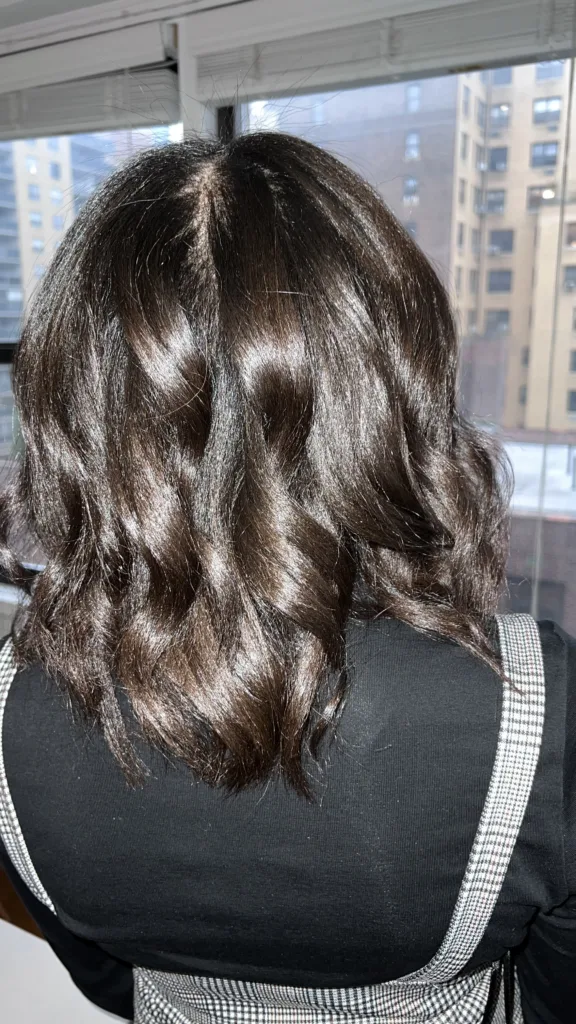
The natural hair movement has fundamentally shifted the entire hair care industry. Black women embracing our natural hair has led to the complete decline of the chemical hair relaxer market. U.S. relaxer sales plummeted from $71 million in 2011 to $30 million in 2021, sales dropping 25% year-over-year in 2020. Meanwhile, natural hair care is booming, a new brand popping up seemingly every week.
As great as this is, a 2023-2027 market research report states that the global hair relaxer market size is actually expected to grow 2.38% by 2027. In other words, the relaxer industry is making a concerted, and calculated, effort to make relaxers cool again.
Google “back to relaxer” and you’ll find a slew of articles from reputable beauty websites featuring former naturals who decided to start using the creamy crack again because their natural hair “was just too much to handle.” Women on TikTok are posting “come with me to get a relaxer!” videos. Getting relaxer is being positioned an innocuous style choice.
I was 29 years old when I started to learn how to take care of my natural hair so I understand how it can feel time consuming. And while I think everyone should do whatever they like with their hair, I think it’s important to be real about the dangers of relaxer and how damaging the narrative of natural hair being inherently difficult is.
In October 2022, the National Institutes of Health released a study showing that the use of chemical hair straighteners were associated with a higher risk of uterine cancer. Dozens of women have since filed lawsuits against relaxer brands.
“Several studies have identified exposure to excess estrogen and hormonal imbalance of estrogen and progesterone as key risk factors in the development of uterine cancer,” Dr. Achiamah Osei-Tutu, a board-certified dermatologist and hair restoration surgeon, told me in an interview. “Some chemical straighteners contain chemicals that affect the endocrine system (endocrine-disrupting chemicals- parabens, phenols, phthalates) as they act as synthetic estrogen compounds.”
A 2021 study also found that hormone disrupting chemicals are found in half of the hair products marketed to Black women but in only 7% of products for white women.
“I think when evaluating risk for uterine cancer and fibroids, we also need to examine the cumulative effect of other products used (chemicals in various oil, “greases” and leave on products) used on a regular basis in women,” Dr. Osei-Tutu explained. While more research needs to be done to conclusively prove the link between chemical relaxers and cancer, Dr. Osei-Tutu said there are known risks to relaxer such as acquired trichorrhexis nodosa(hair fragility and breakage), increased hair frizz, hair loss, hair thinning, chemical burns, allergic contact dermatitis, and traction and scarring alopecia.
Beyond creators and mainstream beauty media glossing over the very real health risks of relaxer, the narrative that relaxed hair is just easier to maintain is also misleading. Relaxed hair is weaker than natural hair and more susceptible to breakage; in order to maintain “healthy” relaxed hair, a lot of maintenance and deep conditioning and strengthening products are required.
“Relaxed hair is easier for people to maintain if they aren’t interested in taking care of their natural texture,” Jaxcee, founder of The Coily Collective, said. “I personally suffered from a lot of hair loss and damage when I was relaxing my hair … While there’s nothing wrong with changing your texture be it temporarily with blow dries or permanently with amino acid treatments or keratin [treatments], we really need to be more considerate of the chemicals that we use on a regular basis, and their effects on our health.” Also, “no lye” relaxer is simply a marketing tactic and is not “safer” than regular relaxer. “A lot of the times brands will replace controversial chemicals with lesser known chemicals that aren’t necessarily better, to put the consumer at ease,” Jaxcee told me.

It’s important to pay attention to who is telling you that natural hair is time consuming and expensive, and why. “Relaxer is an extremely cheap product to make for these brands and it has a built-in reusability factor to it because you’re always going to have to maintain your hair with the product as your hair grows out,” Jaxcee explained. “Therefore trying to create new relaxer customers makes sense from a marketing point view.”
Natural hair is versatile. It’s possible to wear straight styles without putting harsh chemicals on your body and without heat damage. Women with tighter hair types are often fed that notion that their hair is innately difficult, thus fueling a never ending cycle of fighting their hair into submission instead of embracing it. “There’s no such thing as one hair type being too much or difficult,” Sharmaine Joy-el, a natural hair content creator, told me in a previous interview. “I can complete my wash day with 2-3 products and have it done in an hour. All hair types require ‘work.’ Just different products and routines.”
My aunt passed away in 2016 from a rare uterine cancer. She regularly relaxed her hair for decades. And while I’ll never be able to know for sure what caused her cancer, I can’t help wonder if relaxer played a role.
If you’re being influenced by the illusion of ease of relaxed hair, ask yourself why you view caring for your natural hair as an inconvenience rather than self-care. Don’t feel pressured to buy certain products or follow a certain regimen. Have patience with yourself and your hair; your health is most important.

[…] a recent study linking the use of relaxers to uterine cancer and dozens of lawsuits pending against relaxer brands like L’Oreal, relaxers are trying to make a […]